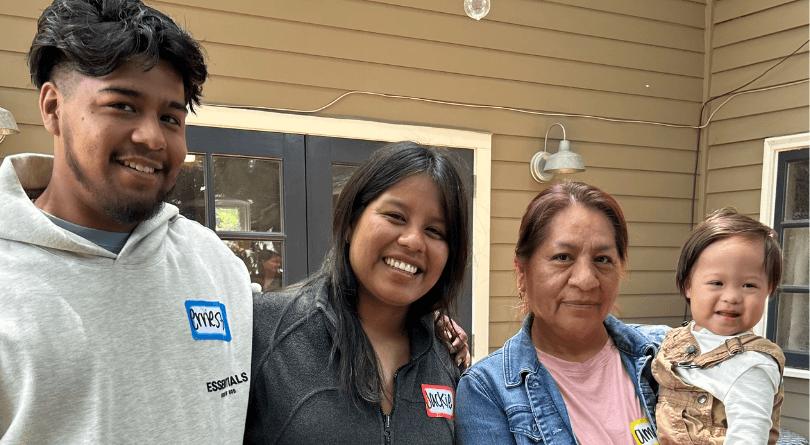CONGRATULATIONS upon the birth of your grandchild!
Below is a list of Grandparent support suggestions that will help you provide assistance to your son or daughter who is parenting a child with Down syndrome. Every family will have unique support needs, so please do not hesitate to Club 21 Learning and Resource Center if you have any questions or need additional resources.
What if I don’t know what to say? It can be very difficult for you when your friend or family member has just had a new baby with Down syndrome. Not only do you have to deal with your own emotions and attitudes about a baby with Down syndrome, but also your sadness for your friend or relative. Your support at this time will be very important to them and can lead to a much stronger and deeper relationship.
- Do be aware that there are revolving cycles of grief: Feelings of depression, anger, non-acceptance or sorrow usually surface around birthdays or milestones, such as when your grandchild “should” be walking. Knowing ahead of time can prevent the reaction from becoming extreme.
- Do be aware that most schools, agencies and parent groups welcome grandparents: Some associations even have grandparent groups. This is a good way of keeping abreast of your grandchild’s specific disability and, more importantly, showcases your overall support and love for your grandchild.
- Do avoid the pitfalls of cliché’-ridden advice: Comments about “God’s will” or statements about things not being as bad as they seem sound condescending and do not provide the comfort that you wish to imply.
- Do remember that if you have a positive, tender, loving attitude towards your grandchild, others in the family will feel the same way: The more support from family members, the better the parents feel.
- Do remember that non-verbal expressions, such as a loving pat to your grandchild’s head, a warm hug to your son, daughter and their spouses- convey what words sometimes cannot express: By the same token, pitying glances, an overall look of sadness or an anxious tone of voice are not comforting and do not convey a reinforcement of support.
- Do let your children know that they can rely on you in good times and in bad: Many grandparents have flexible schedules that can be arranged to meet the needs of the grandchild. Just knowing that this kind of love and help is available can lessen anxieties and strengthen family bonds.
- Do offer to visit or help out with your grandchild regularly: Sometimes staying at a nearby hotel can ease the logistics and make the visit even more rewarding for all concerned.
- Do find the best time for you to visit or telephone: Your children might relish their privacy or be in the middle of things and unless you ask, your visits or calls may come at inconvenient times.
- Please use People First Language to show respect for individuals with Down syndrome: Terms such as, “A Down’s Baby” or “Down Baby” are inappropriate, as they put the child’s disability first. Try, “Sarah, who happens to have Down syndrome….” Or even better: “My beautiful new grandchild!” (See, you do not always have to mention “Down syndrome!”)
- Do remember that the relationship between a grandparent and a grandchild is unique, and the love that is generated is freely given and like no other: Your grandchild is first and foremost a child that is more like other children than unlike other children. The needs of a child with Down syndrome differ only in degree, not in kind. There is no crystal ball for any child, with Down syndrome or without, so your expectations as a grandparent should remain high and abundant! Love them, play with them, have fun with them, spoil them and most of all- accept your grandchild like any other!!
Again, Congratulations on becoming a grandparent!

